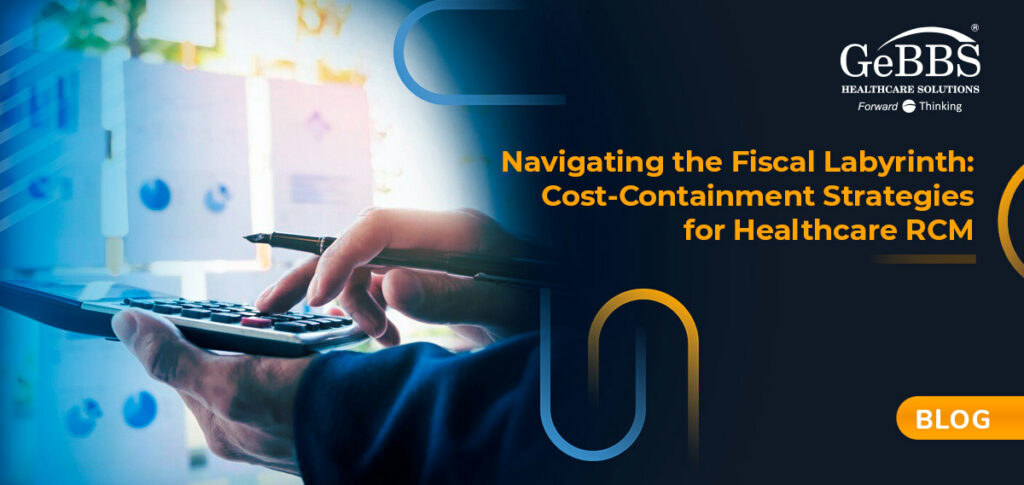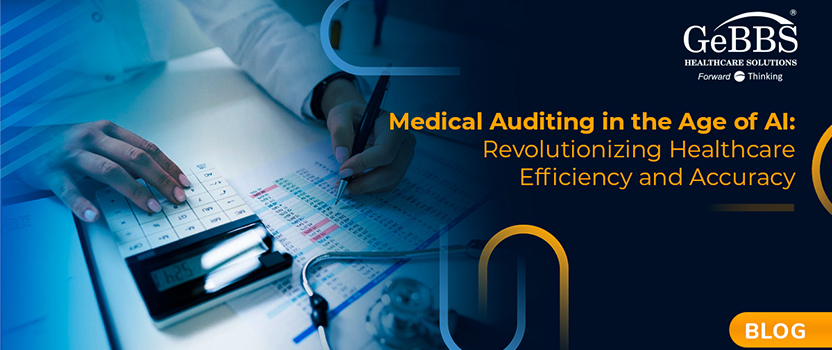Revenue Cycle Management (RCM) plays a crucial role in the healthcare industry in ensuring the financial stability of healthcare providers. One of the most challenging aspects of RCM is the processing of medical insurance claims, ranging from simple to complex and unstructured documents that require manual processing and communication between medical facilities and insurance companies.
Claims denials in RCM are a significant threat to the revenue streams of healthcare providers. According to a recent HIMSS Analytics survey, 31% of healthcare providers still rely on manual processes for claims denial management, highlighting a considerable segment of the industry still needs to leverage automated solutions. This reliance on traditional, time-consuming, and reactive methods can lead to inefficiencies and potential revenue losses.
However, technological advancements, particularly Artificial Intelligence (AI) and Machine Learning (ML), are transforming medical claims processes. These innovative solutions automate and refine operations to reduce the likelihood of human errors, decrease claim denials, and expedite payment processes.
AI and Machine Learning are tools for improving operations and reshaping the approach to denial management in RCM. These technologies offer predictive capabilities that can preempt and prevent potential denials to optimize the revenue cycle and increase overall operational efficiency in healthcare.
Obstacles in Medical Claim Management
Medical practices often struggle with processing insurance claims due to a lack of standardization. These outdated internal processes create a challenging environment for support staff handling a high volume of claim forms daily. While healthcare providers are busy treating patients, insurance companies are responsible for reviewing and processing a large number of claims submitted by various practices, involving a thorough evaluation of each claim to ensure accuracy and authenticity before authorizing payment.
Medical claims forms can be complex, making the data extraction process tedious, monotonous, and prone to human error. AI and ML solutions in healthcare can reduce errors and monotonous workloads for medical support staff and insurance claims processors. These technologies can streamline medical claims processing, leading to more efficient and productive operations.
Machine Learning: A Game Changer in Denial Management
AI systems, adept at analyzing large volumes of data, are instrumental in identifying patterns for potential fraud, waste, and abuse. They are critical in flagging claims for additional review and assessing medical necessity against established standards.
Adequate Machine Learning processes are instrumental in preventing possible denials before submission and ensuring compliance with evolving healthcare regulations and coding accuracy.
Benefits of AI/ML-Driven Claims Management
A Deloitte survey revealed that 95% of medical payers are increasing their digital transformation efforts, specifically on claims management. This shift is crucial to improving data accuracy and establishing “clean claims” in an industry with less than 10% straight-through processing rates.
Artificial Intelligence and Machine Learning are shaping the future of claims management; with advanced analysis and logic-based techniques, AI provides event interpretation, decision automation, and action initiation that will automate 60% of claims processing by 2025. This automation will result in faster processing, increased accuracy, and a better customer experience. The benefits of integrating AI/ML into claims processes include:
Accelerated Claims Processing – AI can automate the claims processing workflow, reducing fraud risk and processing claims faster. By capturing and analyzing relevant data from various claim documents, AI optimizes the process and enhances customer experiences.
Increased “Clean Claims,” Accuracy, and Volume – AI/ML technology automates medical payer intake, reducing errors. “Clean claims” are critical to efficient management, combining AI and human tasks.
Identifying Potential Denial Risks – Machine Learning analyzes past remittance data, flags similar patterns in future claims, warns staff of potential issues, and records these flags and any rejections. This analysis enhances decision-making without removing control from the provider.
Improved Customer Experience – Medical payers can use AI chatbots to improve customer interactions and satisfaction.
Simplified Compliance – AI-driven compliance solutions enhance workflow capabilities, aiding medical payers and providers who are navigating complex regulations.
Securing Sensitive Data – AI/ML safeguards sensitive data, preventing cyberattacks, and ensuring business continuity for medical payers by identifying data patterns and anomalies.
Integrating AI and Machine Learning into Existing RCM Systems
Integrating AI and machine learning into existing RCM systems can be complex and requires a significant investment in technology infrastructure and compatibility with existing systems. Additionally, healthcare professionals must be trained to understand and adapt to these new technologies to fully benefit from them.
A phased approach should be taken to integrate AI and machine learning successfully. Identifying specific areas of the RCM process that can benefit the most from automation and predictive analytics is needed. Clear communication channels between technology providers and healthcare staff should ensure smooth implementation and ongoing support.
Future Outlook of AI/ML in Revenue Cycle Management
The healthcare industry is undergoing a digital transformation, and the use of AI and ML in Revenue Cycle Management has become increasingly necessary for financial longevity and operational efficiency. GeBBS Healthcare Solutions, a leading outsourced medical billing and healthcare coding company, is at the forefront of this transformation. Our proprietary technologies, powered by AI and Natural Language Processing (NLP), offer end-to-end solutions to payers and providers, making us a key player among the largest healthcare RCM companies.
GeBBS’ innovative technology streamlines workflows, conducts real-time quality checks and leverages robust data analytics to improve RCM. Our solutions, including outsourced medical and risk adjustment coding, automate critical financial and administrative processes, significantly improving patient care and reducing costs. Through AI-driven medical billing, GeBBS provides a cost-effective and accurate method for timely billing, leading to increased receivables and reduced costs. Additionally, our use of RPA efficiently handles repetitive, error-prone tasks like manual data entry and simple claim denials, enhancing customer experiences with advanced chatbots.
GeBBS’ transformative RCM strategies save time, improve accuracy, reduce waste, and offer data-driven insights for predictable outcomes. With the right RCM technologies, organizations can avoid revenue leakage, streamline operations, and enhance the bottom line. GeBBS’ ML technologies use historical data to make informed predictions about various aspects of the revenue cycle, ensuring a more efficient and profitable future. iCode Assurance, our interactive audit management tool, optimizes coding audits with an intuitive dashboard, built-in workflow, detailed scorecards, and comprehensive reporting. To discover how GeBBS Healthcare Solutions can revolutionize your RCM to new heights of efficiency and profitability, visit gebbs.com.






